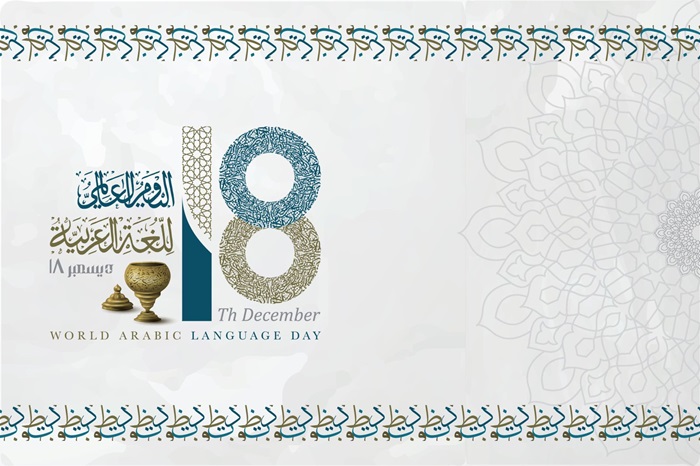
By Khalidh Rizwan
One of the cornerstones of humanity’s cultural variety is the Arabic language. With over 400 million speakers, Arabic is one of the most widely spoken languages in the world. Every year on December 18th, the world comes together to celebrate World Arabic Language Day, commemorating the importance and cultural significance of the Arabic language. This year’s World Arabic Language Day will be celebrated with the theme ‘Arabic Language: Language of Poetry and Arts’. The date and the day in 1973 that the United Nations General Assembly designated Arabic as the organization’s sixth official language coincide.
The Arabic language has given rise to a fascinating aesthetic in domains as diverse as architecture, poetry, philosophy, and song, thanks to the multiplicity of its forms, whether classic or dialectal, from vocal expression to poetic calligraphy. It provides access to a staggering range of identities and beliefs, and its history illustrates the breadth of its connections with other languages. It has allowed for cultural exchange along the silk route, from the coast of India to the Horn of Africa.
The establishment of December 18th as World Arabic Language Day was championed by countries with a deep-rooted connection to the Arabic language and culture. Specifically, it was spearheaded by countries within the Arab League, a regional organization consisting of 22 member states, all of which have Arabic as an official or primary language.
The efforts and advocacy of countries such as Saudi Arabia, Egypt, Jordan, and Morocco, among others within the Arab League, contributed significantly to the global recognition and celebration of the Arabic language on this specific day.
The Arabic language holds a pivotal place in history, culture, and religion. Its roots trace back to the Arabian Peninsula, where it evolved and spread across vast regions, becoming a language of trade, science, literature, and religion. The Qur’an, the holy book of Islam, written in classical Arabic, contributed immensely to its preservation and dissemination.
Arabic became a language of intellectual pursuit during the Islamic Golden Age, fostering advancements in various fields like mathematics, medicine, astronomy, and philosophy. This era’s scholars translated ancient Greek and Roman texts into Arabic, preserving and expanding upon this knowledge, which later spread to Europe, influencing the Renaissance.
The celebration of World Arabic Language Day is an opportunity to recognize and celebrate the richness of the Arabic language and its cultural impact globally. Various events take place worldwide, such as seminars, cultural exhibitions, poetry readings, and educational programs, aimed at highlighting the language’s beauty, diversity, and historical importance.
It’s also a day to acknowledge the contributions of Arabic-speaking scholars, poets, writers, and scientists throughout history, whose works have left an indelible mark on human civilization.
Moreover, Arabic serves as the official language in many countries, fostering diplomatic relations and economic partnerships across the Middle East and North Africa. Its prevalence in media, especially through news outlets, amplifies its impact on global discourse.
As a language connecting diverse cultures and playing a pivotal role in the Islamic world, Arabic’s power lies not only in communication but also in its ability to preserve and propagate ideas, values, and traditions across generations. Arabic stands as a testament to the enduring legacy of this language and its continued importance in today’s interconnected world.
Numerous countries annually commemorate World Arab Day through various organized events by embassies, Arabic institutions, colleges, and organizations. The Royal Embassy of Saudi Arabia in Sri Lanka is set to host a significant celebration in Colombo on Monday, December 18. The event, under the auspices of His Excellency Khalid Hamood Al Kahthani, the Saudi Ambassador to Sri Lanka, will witness the presence of esteemed dignitaries from Sri Lanka.
